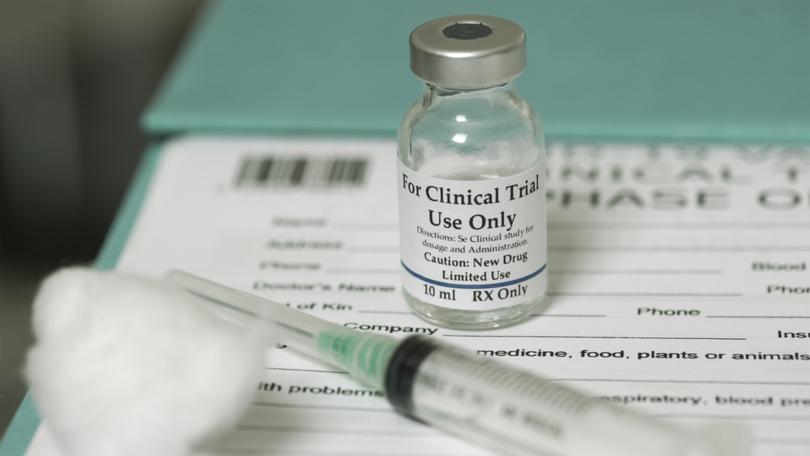A world-first skin cancer vaccine is being trialled on British patients
The global trial is entering its third stage and is expected to be tested on 1,100 patients worldwide.

A world-first personalised jab for skin cancer – hailed as a potential “game-changer” for treatment – is being tested on British patients.
Each vaccine is custom-made for individuals using the specific genetic make-up of their tumour, giving the best chance of a cure.
It works by telling the body to hunt down cancer cells and prevent the deadly melanoma from coming back. Early results of the jab, developed by pharma giants Moderna and MSD, found it drastically improved the survival chances of the deadliest form of skin cancer.
Sign up to The Nightly's newsletters.
Get the first look at the digital newspaper, curated daily stories and breaking headlines delivered to your inbox.
By continuing you agree to our Terms and Privacy Policy.Now University College London Hospitals NHS Foundation Trust (UCLH) is leading the final phase of trials of the therapy, which scientists hope could also be used to stop lung, bladder and kidney cancer.
The jab, which is set to be tested on around 1,100 patients worldwide, is an individualised neoantigen therapy (INT) and is sometimes referred to as a cancer vaccine.
It is designed to trigger the immune system so it can fight back against the patient’s specific type of cancer and tumour.
Experts say the vaccine – known as mRNA-4157 (V940) – targets tumour neoantigens, which are individual to each patient.
The jab carries coding for up to 34 neoantigens and activates an anti-tumour immune response based on the unique mutations in a patient’s cancer.
Dr Heather Shaw, national coordinating investigator for the trial, described it as “one of the most exciting things we’ve seen in a really long time”.
She said: “I think there is a real hope that these will be the gamechangers in immunotherapy.”
“We’ve looked for a long time for something that would be additive to the immunotherapies that we already have – that we know can be life-changing for patients – but with something that’s got a really acceptable side-effect profile. ‘And these therapies look as if they may offer that promise.”
To create the jab, a sample of tumour is removed during the patient’s surgery.
Scientists then sequence the tumour genes to identify neoantigens that will trigger an immune response.
These are then used to create an individualised mRNA vaccine that tells the patient’s body to generate T-cells to combat the specific mutational signature of the tumours.
The T-cells then attack the tumour, killing the cancer cells while the immune system should recognise any future rogue cells, hopefully stopping the cancer returning.
Dr Shaw added: “This is very much an individualised therapy and it’s far cleverer in some senses than a vaccine. It is absolutely custom built for the patient – you couldn’t give this to the next patient in the line because you wouldn’t expect it to work.”
After promising results from earlier tests, the phase three global trial will now include a wider range of participants including at least 70 UK patients across eight centres including London, Manchester, Edinburgh and Leeds.
The therapy combination is also being trialled in lung, bladder and kidney cancer.
One of the first patients on the trial at UCLH is Steve Young from Stevenage, Hertfordshire.
The 52- year-old discovered that a bump on the head he’d had for around a decade was, in fact, melanoma.
Mr Young said when he was told about the trial at UCLH it “really triggered my geek radar”.
He said: “It really piqued my interest. I’m really, really excited. This is my best chance at stopping the cancer in its tracks.”
Originally published on Daily Mail
